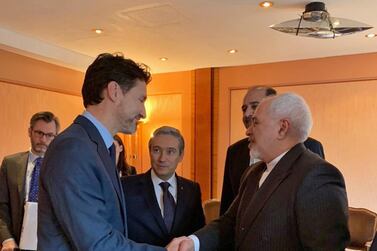Thousands of Iranian candidates approved to run in parliamentary elections have launched their campaigns for the February 21 parliamentary elections after authorities barred thousands of reformists and moderates from running.
More than 90 members of the 290-strong parliament have been barred from standing for re-election.
Some reportedly received short letters giving broad justifications such as financial irregularities and not being faithful to Islam.
Among the 16,000 people who applied to stand in the elections, between 7,000 and 9,000 have been disqualified. The process, enshrined in law, is justified on the grounds that Iran does not have permanent political parties to filter candidates.
Reformist candidates appear to have been disproportionately and systematically purged from the elections after vetting by the Guardian Council, a 12-strong body of lawyers and religious leaders appointed indirectly by the supreme leader, Ayatollah Ali Khamenei.
Moderates and reformists have championed improved ties with the West and expanded social freedom, but they suffered major setbacks since US President Donald Trump’s withdrawal from the Iran nuclear deal.
While moderates and reformists bore the brunt of the cull, there were also some conservatives among those barred, and 90 current politicians.
The current 290-member parliament, elected in 2016, has more than 100 reformists and moderates, while the rest of the chamber is split between independents and conservatives.
The parliamentary elections are seen as a test of the popularity of the relatively moderate and pro-reform bloc led by Iranian President Hassan Rouhani, who has struggled to deliver on campaign promises to improve people's lives as Iran's economy has endured US economic sanctions.
The Iranian president criticised the disqualifications but last week urged the crowds in Tehran, marking the anniversary of the country's 1979 Islamic Revolution, to turn out at the polls in large numbers.
A high turnout in the polls will be seen as a vote of confidence in the country’s Shiite theocracy, something Iran has tried to showcase amid some of the highest tension between Tehran and Washington in the past four decades.
Iran’s reformist policymaking High Council claimed last month there had been bias against its candidates, saying 90 per cent of them had been barred.
Mr Rouhani’s chief of staff, Mahmoud Vaezi, has complained that candidates’ views on issues such as the nuclear deal has led to disqualifications.
The controversy has deepened in the past few days after claims by one disqualified Iranian MP, Mahmoud Sadeghi, that middlemen were offering barred candidates the chance to run if they paid large bribes. Arrests have been made after Mr Sadeghi produced tape recordings to back his claim.
In an effort to crack down on criticism of the process on social media and in the press, Iranian intelligence raided the homes of four journalists in January and early February, confiscating documents and equipment, reported the Committee to Protect Journalists.
In all 10 parliamentary elections since 1980, the Guardian Council has rejected anywhere from 15 to 49 per cent of candidates who registered to run.
In the 2016 election, a bloc of reformists, centrists and moderate conservatives won 41 per cent of parliamentary seats. Hardliners won 29 per cent and independents took 28 per cent.






